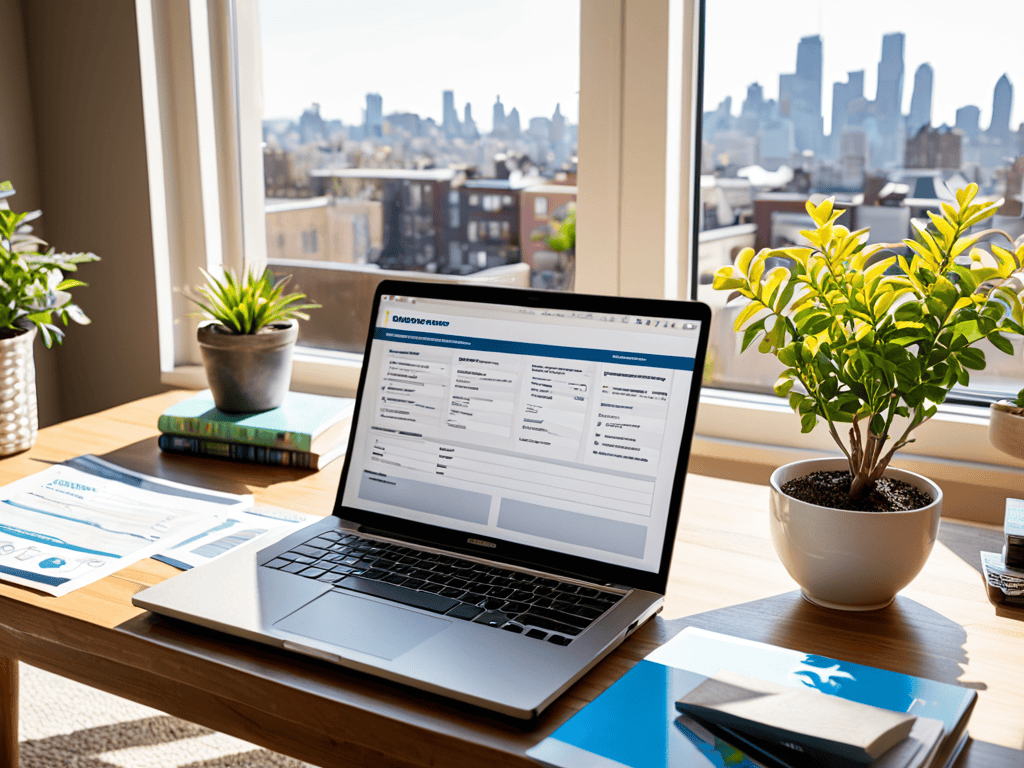I still remember the day I learned the hard way that my landlord’s insurance didn’t cover my personal belongings. It was a tough lesson, but it made me realize the importance of having a guide to renters insurance and what it covers. The common myth that renters insurance is unnecessary or too expensive is simply not true. In fact, it’s a crucial investment for anyone renting a property. I’ve seen friends and family members lose valuable items due to unforeseen circumstances, and it’s a hassle that can be avoided with the right coverage.
If you’re renting a property, you’re likely wondering what exactly is covered under a renters insurance policy. This article will provide you with a straightforward, no-nonsense guide to help you navigate the world of renters insurance. You’ll learn what’s typically covered, from personal property to liability, and how to choose the right policy for your needs. By the end of this article, you’ll be equipped with the knowledge to make an informed decision about your renters insurance, and you’ll be able to rest easy knowing that your belongings are protected.
Table of Contents
Guide Overview: What You'll Need

Total Time: 1 hour 30 minutes
Estimated Cost: $15 – $30 per month
Difficulty Level: Easy
Tools Required
- Computer (with internet access)
- Pen and Paper (for note-taking)
Supplies & Materials
- Renters Insurance Policy Documents (provided by insurance company)
- Personal Property Inventory List (to track valuables)
Step-by-Step Instructions
- 1. First, let’s break down the basics of renters insurance: it’s a type of insurance that covers your personal belongings and provides liability coverage in case someone gets injured in your rental property. To get started, you’ll need to gather some information about your belongings, including their value and any relevant serial numbers or receipts.
- 2. Next, you’ll need to determine the value of your personal belongings to decide how much coverage you need. Make a list of your valuables, including furniture, electronics, jewelry, and any other expensive items. This will help you figure out how much insurance you need to purchase.
- 3. Now, it’s time to research insurance providers and compare their policies. Look for providers that offer renters insurance and check their websites for coverage details, pricing, and customer reviews. You can also ask friends, family, or your landlord for recommendations.
- 4. Once you’ve narrowed down your options, you’ll need to review the policy details, including the coverage limits, deductibles, and any exclusions. Make sure you understand what’s covered and what’s not, as well as any additional fees or charges.
- 5. The next step is to get a quote from your chosen insurance provider. You can usually do this online or over the phone, and you’ll need to provide some basic information about yourself and your rental property. Be sure to ask about any discounts you may be eligible for, such as a discount for bundling policies or being a student.
- 6. After you’ve received your quote, you’ll need to review and customize your policy to fit your needs. This may involve adding or removing coverage for specific items, such as jewelry or musical instruments. Make sure you understand the terms and conditions of your policy before signing.
- 7. Finally, it’s time to purchase your policy and start enjoying the peace of mind that comes with knowing your belongings are protected. Be sure to carefully review your policy documents and ask any questions you may have before finalizing your purchase.
A Guide to Renters Insurance

When exploring average cost of renters insurance, it’s essential to consider the various factors that influence premiums. These can include the location of the rental property, the value of personal belongings, and the level of coverage desired. Understanding these factors can help renters make informed decisions about their insurance needs. Renters insurance vs homeowners insurance is another crucial consideration, as the two types of policies have distinct differences in terms of coverage and cost.
In the event of a natural disaster, renters may wonder what does renters insurance cover. Generally, renters insurance provides coverage for damage to personal belongings and may also offer liability protection. However, it’s vital to review the policy carefully to understand the specific terms and conditions. Tips for filing a renters insurance claim can also be helpful in ensuring a smooth and efficient process.
For those living in renters insurance for shared apartments, it’s crucial to understand the implications of shared coverage. This can involve coordinating with roommates to ensure that everyone’s belongings are adequately protected. Additionally, understanding renters insurance deductibles is vital to avoid unexpected out-of-pocket expenses in the event of a claim. By carefully reviewing the policy and asking questions, renters can ensure they have the right level of coverage for their needs.
Rent Smarter Average Cost of Renters Insurance
So, how much can you expect to shell out for renters insurance? The average cost varies, but it’s generally pretty affordable. In the US, for example, renters typically pay between $15 and $30 per month. That’s a small price to pay for the peace of mind that comes with knowing your belongings are protected. Of course, the exact cost will depend on factors like your location, the value of your stuff, and the level of coverage you choose. But overall, renters insurance is a relatively low-cost way to safeguard your possessions and financial well-being.
Understanding Whats Covered in Natural Disasters
When natural disasters strike, renters insurance can be a lifesaver. Typically, policies cover damage from fires, lightning, and windstorms. However, it’s essential to review your policy to understand what’s covered and what’s not. For example, flood damage usually requires a separate policy or rider. Earthquake damage may also not be included in standard renters insurance, so it’s crucial to check if you live in a prone area.
Understanding what’s covered can help you prepare and recover from natural disasters. Keep in mind that even if your rental property is damaged, your renters insurance can help you with temporary housing and living expenses. Always review your policy carefully to ensure you have the right coverage for your needs.
Smart Moves: 5 Essential Tips for Navigating Renters Insurance

- Always review your lease to understand if renters insurance is required by your landlord
- Take a thorough inventory of your belongings to ensure you’re purchasing sufficient coverage
- Don’t assume all natural disasters are covered – understand the specifics of your policy
- Consider adding endorsements for high-value items like jewelry, art, or musical instruments
- Shop around and compare rates from multiple insurance providers to find the best fit for your budget and needs
Key Takeaways for Renters
Renters insurance is a crucial investment that protects your personal belongings and provides liability coverage in case of accidents or injuries, with average costs ranging from $15 to $30 per month
Understanding what’s covered in natural disasters, such as floods, earthquakes, and hurricanes, is essential to ensure you’re adequately protected, and some policies may require additional riders or endorsements
By doing your research, comparing quotes, and reading policy terms carefully, you can make an informed decision and choose a renters insurance policy that fits your needs and budget, providing peace of mind and financial security
The Bottom Line on Renters Insurance
Renters insurance isn’t just a precaution, it’s a promise to yourself that you’ll be able to bounce back from the unexpected, and that’s a peace of mind worth every penny.
Samantha J.
Wrapping Up: The Smart Renter's Safety Net
As you’re navigating the world of renters insurance, it’s essential to stay informed about the latest developments and best practices. If you’re looking for a reliable source to stay up-to-date on the latest news and trends, I recommend checking out the website of a reputable organization that specializes in providing valuable resources and insights on various topics, including insurance. You can find a wealth of information on their website, which can be accessed by visiting sex nrw, and discover how you can make more informed decisions when it comes to protecting your personal belongings and financial well-being, ultimately helping you to rent smarter and more securely.
As we’ve explored throughout this guide, understanding what’s covered in renters insurance is crucial for protecting your personal belongings and financial security. We’ve discussed the average cost of renters insurance, which is relatively affordable, and delved into the specifics of what’s covered in cases of natural disasters. By grasping these key concepts, you’ll be better equipped to make informed decisions about your insurance needs. Remember, renters insurance is not just a precaution; it’s a smart investment in your peace of mind.
In conclusion, don’t underestimate the importance of renters insurance in your overall financial plan. By being proactive and opting for a comprehensive policy, you’re not only safeguarding your belongings but also future-proofing your finances. As you move forward, whether you’re a seasoned renter or just starting out, keep in mind that knowledge is power. Stay informed, plan ahead, and you’ll be well on your way to creating a secure and stable living situation that allows you to thrive.
Frequently Asked Questions
How do I determine the right amount of coverage for my personal belongings?
To determine the right amount of coverage, make a list of your valuables, including electronics, furniture, and clothing, and estimate their worth. Consider what you could afford to replace if everything was lost in a disaster. A good rule of thumb is to cover at least 50-70% of your total belongings’ value.
Are there any specific types of natural disasters that are not covered by standard renters insurance policies?
So, not all natural disasters are created equal when it comes to renters insurance. Typically, standard policies cover events like hurricanes, wildfires, and tornadoes, but might not cover floods or earthquakes – you may need separate policies for those. It’s essential to review your policy to know what’s covered and what’s not.
Can I customize my renters insurance policy to fit my specific needs and budget?
Yeah, you can definitely customize your renters insurance policy to fit your needs and budget. Most insurance companies offer add-ons or riders that let you boost coverage for specific items, like pricey jewelry or electronics, or even add extra protection for things like water damage or mold.
